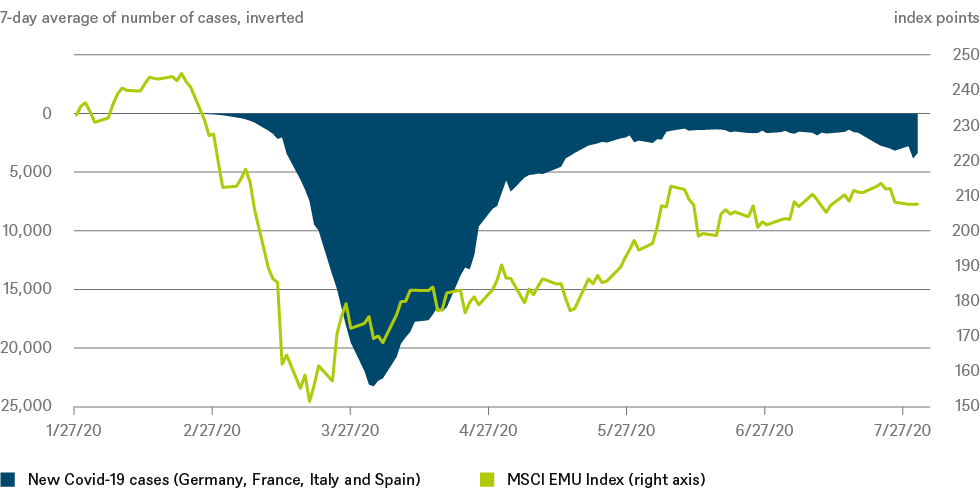DWS | The recent pattern in European equity markets looks strikingly similar to what happened in Asia after the SARS outbreak. That could be a mixed blessing.
What is going on in stock markets? How come major indices continue to climb despite rising numbers of Covid-19 infections? Five months ago is when we first asked ourselves these questions. Mid-February, to be precise. China had just revised the number of reported cases upwards by 14,800. Meanwhile, many major equity markets were reaching new highs.
Back in February, we took a look back at the year 2003 and the outbreak of severe acute respiratory syndrome (SARS) as a reference point (see Chart of the Week as of 2/14/20). Though we advised for caution, the full extent of the pandemic was beyond our imagination back then. So was the economic damage that Covid-19 went on to cause. Nevertheless, equity markets have recovered nicely since their March lows. How do recent market developments compare to the latest infection numbers?
Although the current pandemic has been many times more serious than the SARS outbreak, there is still a striking similarity in the pattern. On western stock exchanges, the sharp selloff began a good two weeks before the sharp rise in the number of Covid-19 infections, as our “Chart of the Week” shows on the basis of the European stock market (MSCI EMU Index). Stocks hit rock bottom about a week before the number of daily new infections peaked. The lead time was only a few days. Still, some might be ready to give the markets high marks in evaluating pandemic patterns.We would be a little cautious with such a verdict. After all, what seems to count for equity markets is less the number of people affected than the general economic outlook. So far, the stabilization in the economic outlook has relatively little to do with better medical treatments or more efficient containment measures as a glance at the number of cases in the United States shows. Instead, it mainly reflects massive economic stimulus programs of fiscal and monetary policy. In Europe, too, the currently observed increase in new infections has not impressed the markets very much. If there are further Covid-19 waves, however, this could quickly change. Back in 2003, SARS completely disappeared after a while, for reasons that remain murky to this day. By contrast, there is no end in sight to the current global pandemic.






